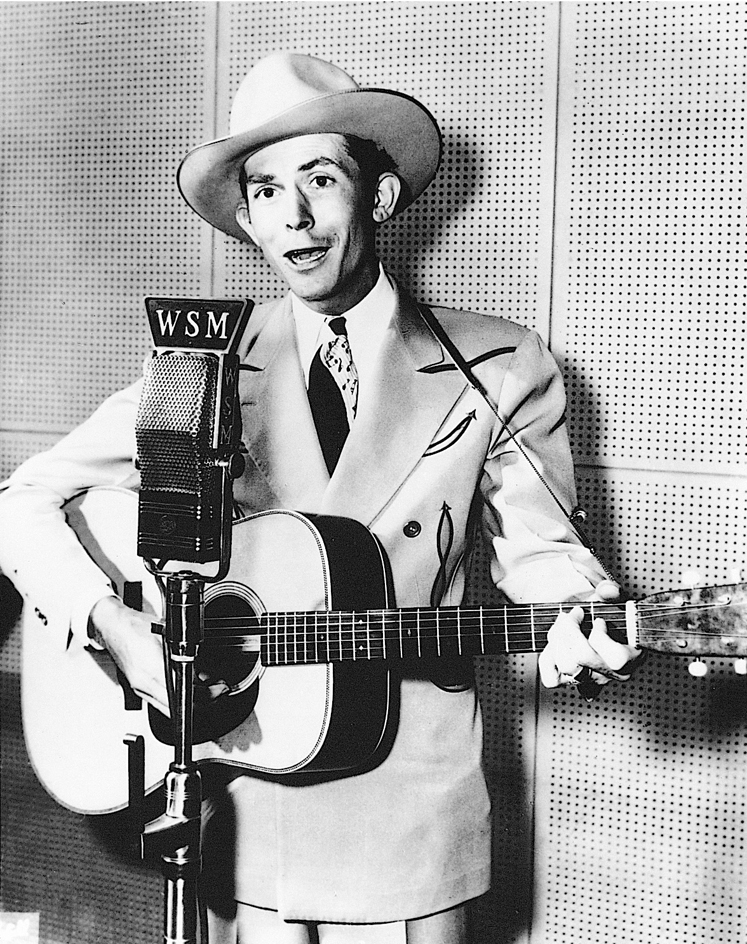Williams, Hank (1923-1953), was one of the greatest stars in American country and western music. Williams was both a singer and a composer. His songs helped country music spread from the rural South and Southwest to other regions of the United States. Williams’s best-known songs include “Lovesick Blues” (1949), “I’m So Lonesome I Could Cry” (1949), “Why Don’t You Love Me” (1950), “Cold, Cold Heart” (1950), “Long Gone Lonesome Blues” (1950), “Hey, Good Lookin'” (1951), “I Can’t Help It (If I’m Still in Love with You)” (1951), “Half as Much” (1952), “Jambalaya (On the Bayou)” (1952), “Take These Chains from My Heart” (1952), “I’ll Never Get Out of This World Alive” (1952), and “Your Cheatin’ Heart” (1952).

Hiram King Williams was born on Sept. 17, 1923, in Mount Olive, Alabama. He taught himself to play the guitar when he was 8 years old. At 14, he formed a band, the Drifting Cowboys. The band began to perform on radio the next year.
In 1947, Williams started recording in Nashville , the center of country music. There he achieved his greatest popularity through recordings and radio performances, particularly on the “Grand Ole Opry” program. Williams died of a heart ailment on Jan. 1, 1953, at the age of 29 while traveling to a performance. He was elected to the Country Music Hall of Fame in 1961. In 1987, Williams was elected to the Rock and Roll Hall of Fame as a performer who had an early influence on rock music . He received a Pulitzer Prize citation in 2010, for “his craftsmanship as a songwriter who expressed universal feelings with poignant simplicity and played a pivotal role in transforming country music into a major musical and cultural force in American life.”
Williams’s son, Hank Williams, Jr., also became an important country music singer and composer. Hank Williams’s grandson Hank Williams III and granddaughter Holly Williams are also country artists.
